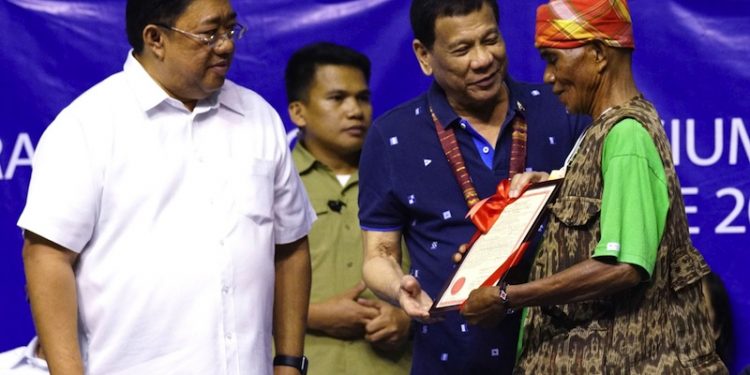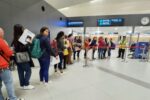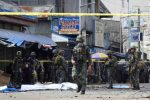405K farmers benefited from land reform under Duterte admin

President Rodrigo Duterte hands a Certificate of Land Ownership Award to a beneficiary at Lagao Gymnasium in General Santos City. More than 20,000 hectares of agricultural land were distributed in Soccsksargen that day. (PCOO photo)
The Department of Agrarian Reform (DAR) under the administration of President Rodrigo Duterte have distributed a total of 516,000 hectares among 405,800 farmers nationwide, Secretary John Castriciones said.
He added that President Duterte most of the time attended the distribution ceremony.
President Duterte led the distribution of Certificates of Land Ownership Award (CLOA) in Kidapawan City, Cotabato last Dec. 29, 2018, covering 11,443 hectares for more than 6,000 beneficiaries.
He (Duterte) was also in General Santos City on June 13, 2019 when more than 20,000 hectares of agricultural land were given in a region-wide distribution done in one day.
Castriciones said nothing came easy as problems hounded the agency at the onset of the Duterte administration
“Una, ang balanseng ektarya ng lupa na puwede pang ipamahagi ay nasa 548,564 ektarya na lamang. Subalit karamihan dito ay problematic land holdings dahil sa mga pending na kaso. Dagdag pa rito, nagwakas na ang pag-i-issue ng notice of coverage noong 2014 (First, the remaining hectares of land that can be distributed was at 548,564 hectares only. Moreover, many of these are problematic land holdings with pending cases, not to mention that the issuance of notice of coverage ended in 2014),” Castriciones said.
More than 50,000 cases were pending before the DAR Adjudication Board (DARAB) about the Agrarian Law implementation, leading to numerous protests by farmers.
Castriciones said cases under DARAB were caused by disagreements between landowners and farmers, while those under the category of the Agrarian Law implementation involved lack of detailed guidelines.
“Pangatlo, dinatnan ng administrasyong Duterte ang 1.3 milyong ektarya ng lupa na ipinamigay ng mga nakaraang administrasyon bilang mga collective CLOA at apektado ang 1.1 million agrarian reform beneficiaries (Third, the collective CLOA involving 1.3 million hectares of land distributed during past administrations affecting 1.1 million agrarian reform beneficiaries were already existing when the Duterte administration came in),” he said.
Castriciones said the collective CLOA caused problems for farmers because they could not identify which part of the land they actually own.
As a result, they could not pay for their land amortization with the Land Bank of the Philippines as they could not identify what is theirs.
They also did not have individual titles that they could use as collateral in case they need to avail of services by financial institutions.
“At sa panig ng local government, hindi naman sila makasingil ng real property tax o amilyar sa mga magsasaka. Dahil sa mga problemang ito, ‘di nakapagtatakang ang sektor ng mga magsasaka ang nanatiling pinakamahirap sa ating lipunan (And on the part of the local government, they were unable to collect real property taxes from the farmers. Because of these problems, it is not surprising that the agricultural sector remained the poorest in our society),” Castriciones said.
With President Duterte’s marching orders to Castriciones and the DAR to implement real agrarian reform and help improve the lives of recipients, he said they had to make innovations and go down to meet the farmers.
Currently, Castriciones said the agency has 2.486 million agrarian reform beneficiaries (ARBs) from 1972 up to 2020, of which 166,127 were from 2016, while 1.3 million or 53 percent of ARBs are now within 2,234 agrarian reform communities.
Castriciones said the agency continues to empower beneficiaries with training and financial assistance that have reached 1,626,097 ARBs.
Of the figures, 897,882 farmer-ARBs have availed of financial assistance worth a total PHP18.7 billion.






